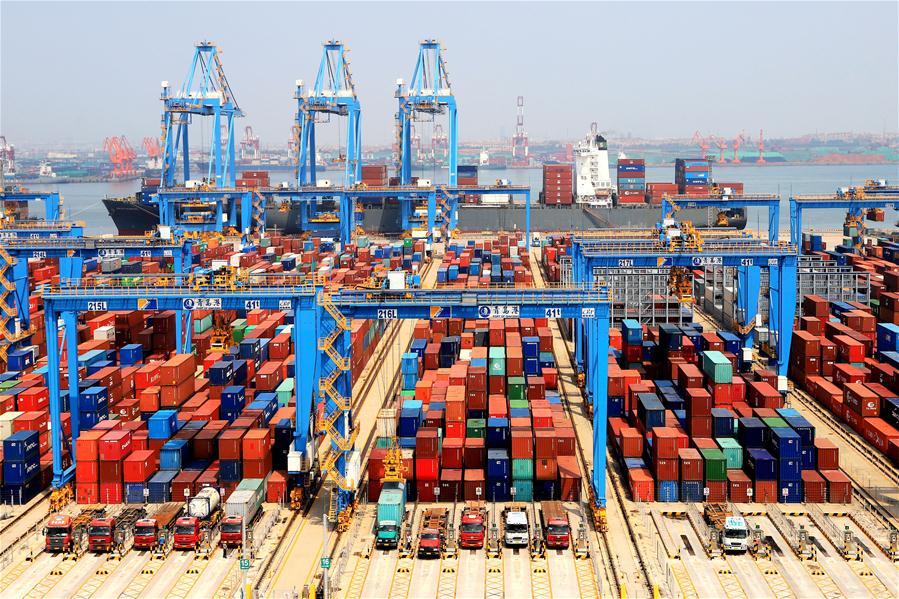Implications of China's new foreign investment law
- By Daniel Hyatt
 0 Comment(s)
0 Comment(s) Print
Print E-mail China.org.cn, February 26, 2019
E-mail China.org.cn, February 26, 2019

Chinese economy is being transformed. After the rapid growth seen at the turn of the century, it is now rising in value. As the opening-up process continues apace, the government is offering big incentives to foreign enterprises to increase their stakes in China's mainland market.
Most importantly, a new foreign investment law (FIL) is on the cards.
The new law is a replacement of three older ones covering investments from abroad. Ready to be reviewed at the upcoming plenary session of the 13th National People's Congress in March, the new law will focus on equity and non-equity joint ventures and foreign-owned commercial entities among others.
This comes at a time when several multinationals are bidding to expand their share of the Chinese market. Leading enterprises who announced fresh large investments last year include Germany's BMW AG and BASF SE, along with Exxon-Mobil Corp. and Tesla from the United States.
The new law will enhance market accessibility and add further protection to FDI, which is expected to rise significantly in 2019 beyond last year's US$135 billion.

Growing investor confidence, coupled with the transparency in the financial environment, is expected to spur greater economic activity and induce a surge in business collaborations.
In this regard, an important concern has been addressed. The new law explicitly forbids the use of administrative methods by officials to force technology transfers from abroad. Instead, it encourages voluntary cooperation by investors based on fair settlement principles, while guaranteeing protection of their intellectual property rights.
As a further incentive, foreign companies are being treated equally with their Chinese counterparts, with fewer bureaucratic hurdles and less hassle. They will now be regulated by the same laws applying to the establishment and expansion of domestic companies.
One exception, however, is the negative list. As maintained by many countries, the list is a set of industries where foreign investment remains restricted. Although it has been shrinking through frequent revisions, the Chinese list still identifies 48 such sectors; but there are less restrictions for the pilot Free Trade Zones (FTZs) now testing the waters.
Thus, a fairer rules-based environment is being built conforming to international norms while still considering local conditions. Anti-monopoly measures are being stepped up for domestic–foreign mergers and a more efficient mechanism for reporting investment information is being introduced.
Another benefit of the law is its contribution to the high-quality development of China. After rising rapidly, the country's economy is moving towards a sustainable capacity. The trend, incorrectly interpreted as a "slowdown" abroad, is actually a strengthening of the economy's resilience and giving it more room to maneuver.
Before the law can be implemented, however, a comprehensive feedback structure is in place to ensure the valid concerns of stakeholders are considered. The draft was opened for comments of foreign companies and foreign chambers of commerce. Although there is a possibility that some cooperative ventures will need to reorganize their structures to meet the new requirements, the overall response has been positive so far.
The impact of the new law should become more apparent by assessing the outcomes of some upcoming activities.

First is the China International Import Expo scheduled to be held early November. The expo debuted last year and achieved deals worth over US$57 billion. This year, potential investors will have a facilitative cover of the new law.
Second is a push by the Ministry of Commerce to lower or remove managerial barriers in the pilot FTZs. Hainan FTZ is being promoted to attract additional capital, whereas Shanghai FTZ is being expanded with further liberalization of its investment atmosphere. The law will make it convenient for companies planning to enter the Chinese market through these zones.
It is obvious that China's legislative system is not stagnant, and that government is constantly seeking to adjust its policies to promote its economy in a global setting, which is a great encouragement for all those thinking of investing in China's mainland market.
Daniel Hyatt is a Pakistan-based freelance journalist and commentator on modern China.
Opinion articles reflect the views of their authors only, not necessarily those of China.org.cn.
If you would like to contribute and have specific expertise, please contact us at opinion@china.org.cn.





